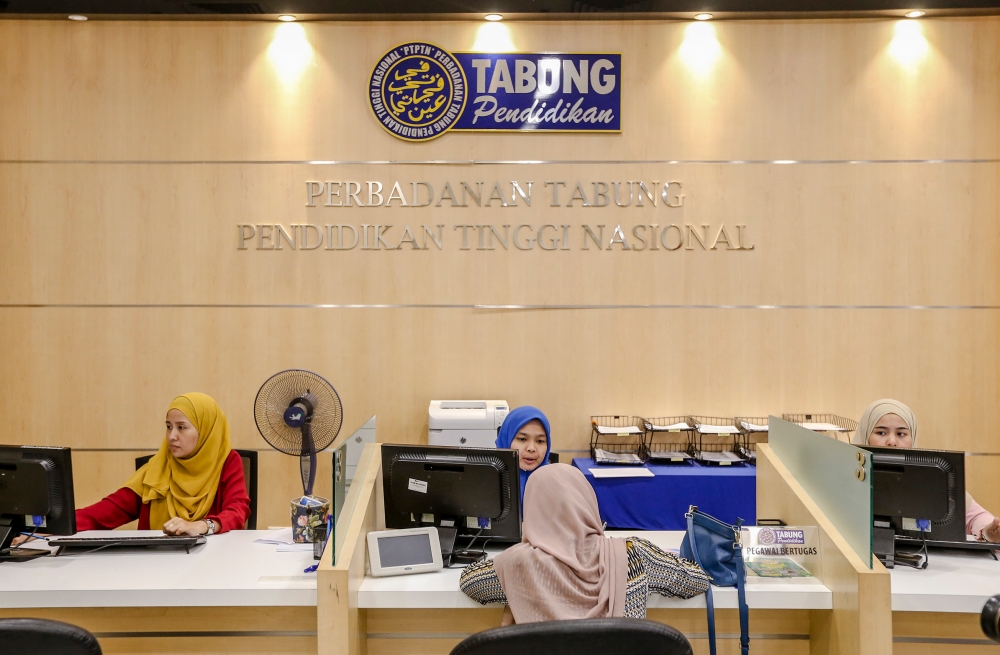DECEMBER 7 — As a borrower of the National Higher Education Fund Corporation (PTPTN), I would like to share my experience and perspective on the issue of loan repayments. Coming from a lower-middle-income family, I was fortunate to receive a PTPTN loan that allowed me to pursue my dream of higher education.
Without this financial support, my aspirations would have remained out of reach.
After graduating, I was blessed to secure a job within a year. Naturally, my PTPTN loan repayments were triggered. Despite my starting salary being modest, the monthly repayment amount was within my financial capacity.
To me, repaying the loan was not just a contractual obligation—it was also a social and moral responsibility, and for those of us who are religious, a religious duty as well.
Recently, I heard announcements on the radio urging PTPTN borrowers to repay their loans.
It surprised me that PTPTN had to resort to such measures, including using social media, to remind borrowers to fulfill their responsibilities.
This brought back memories of some of my peers during university days who misused their PTPTN loans for non-essentials, such as expensive smartphones and extravagant spending.
Even more disappointing was the attitude of some who, nearing graduation, openly declared that they had no intention of repaying their loans—either because they had yet to find a job or felt that their future salaries would not be sufficient.

Ironically, many of them are now employed, yet still claim they cannot afford to repay, despite visibly leading lifestyles that include frequent dining out and purchasing luxury items.
This letter is not meant to criticise but to encourage borrowers to reflect on their responsibilities.
As borrowers, we are bound by a legal agreement with PTPTN. Failure to honor this agreement not only violates the contract but also carries potential legal consequences.
Repaying a loan is more than fulfilling a legal requirement—it is a crucial part of financial discipline. Budgeting and prudence are skills we must cultivate. Even when I face financial constraints, I make it a priority to allocate funds for my PTPTN repayments.
This has taught me to manage my finances better, ensuring that I live within my means. Financial responsibility is not just about meeting current needs but also about planning for a sustainable future.
Every repayment contributes to a pool of funds that supports new students in need of financial assistance.
PTPTN is not an unlimited resource. If current borrowers fail to repay, it directly jeopardises the ability of the institution to assist future students, especially those from low-income families who rely on this funding to access higher education.
As recipients of this privilege, we have a moral obligation to ensure that others can enjoy the same opportunities we were given.
Repaying our loans is a way of giving back to the society that invested in our future.
In many countries, failing to repay student loans would result in severe consequences. For instance, in the United States, student loan defaulters face wage garnishment, damaged credit scores, and even legal action.
In Germany, while higher education is subsidised, borrowers of student loans must strictly adhere to repayment schedules, or face significant penalties.
In comparison, PTPTN has shown leniency by offering flexible repayment options and restructuring schemes. We must not take this leniency for granted.
To my fellow PTPTN borrowers, I urge you to reflect on the immense opportunity we were given to pursue higher education.
This privilege came with a responsibility—to repay what we borrowed so that others may have the same chance.
Each repayment is a contribution to the future of our nation, ensuring that PTPTN can continue to support students from all walks of life.
For those who are struggling financially, PTPTN has shown understanding by offering options such as loan restructuring and flexible payment plans.
Reach out and take the first step—it is never too late to start fulfilling this responsibility.
Remember, this is not just about legal obligations. It is about integrity, moral accountability, and ensuring a brighter future for the next generation.
Let us not deprive others of opportunities we were fortunate to receive. Together, we can make a difference and uphold the sustainability of education for all.
** This is the personal opinion of the writer or publication and does not necessarily represent the views of Malay Mail.





















